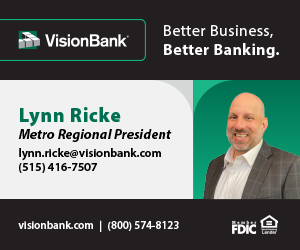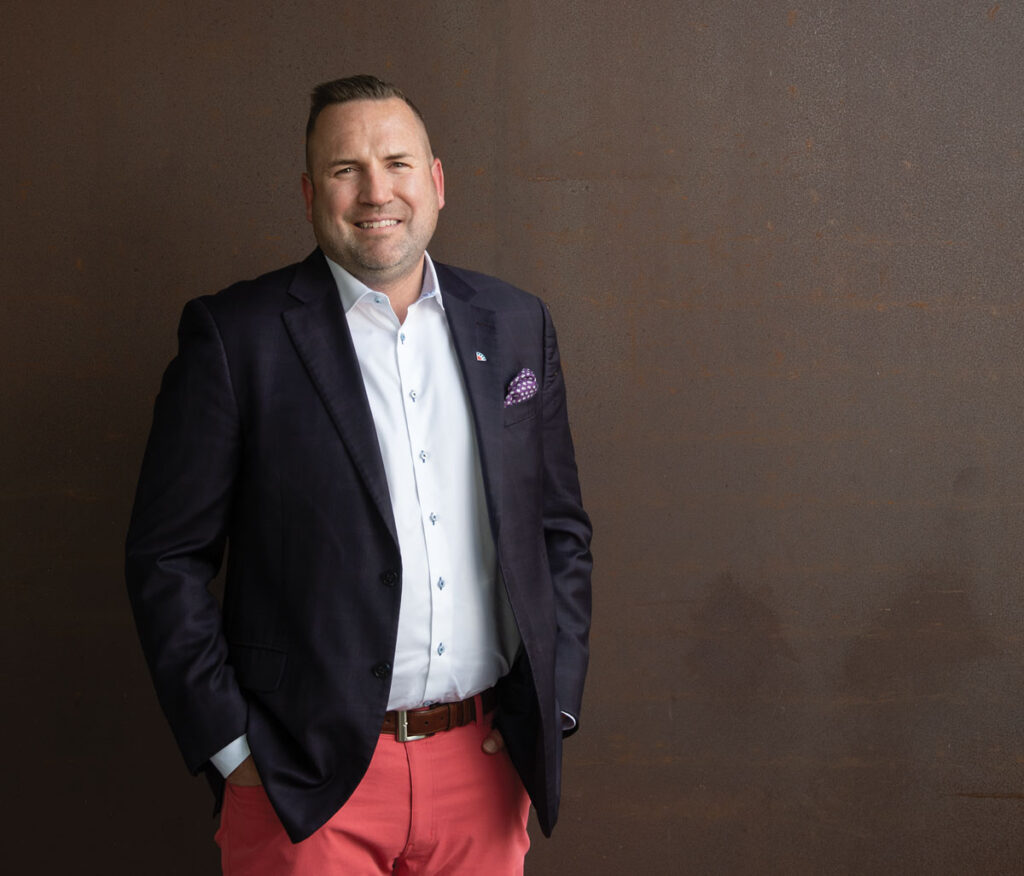Private bankers say communication helped clients stay the course

Until recently, Scott Johnson didn’t have much good economic news to report to his wealth management clients, as declining financial markets took their toll on asset values in the past couple of years. However, the tough market conditions required Johnson and his colleagues at BTC Wealth Management Group to communicate even more frequently than usual with clients.
“Our clients for the most part weathered that period well, not that they didn’t experience market value declines,” said Johnson, vice president and director of wealth planning and strategy for BTC Wealth Management, a division of Des Moines-based Bankers Trust Co. Most important, most clients didn’t panic and remained invested in the stock market, which Johnson credits to the communication and advice his team provides.
Back in the game
In the aftermath of the financial crisis, community banks that offer private banking services are competing more intensely for high-net-worth clients, said David Riggenberg, president of Iowa State Bank in Des Moines.
“We don’t see banks moving out of it; we continue to face the same competitors as we have in the past,” he said. “I would say the competitiveness has intensified a bit. A lot of banks are looking for good quality customers, and that certainly includes our private banking clients.”
As an industry, private banks have generally been profitable even during economic downturns, with regional and local banks the fastest to recover from losses in assets, according to a research report by Booz & Co. And on a long-term basis, the pool of potential clients continues to increase, the report said. In North America, the number of high-net-worth individuals, defined as those with assets of $1 million or more, increased by 8.4 percent between 2002 and 2007, outpacing economic growth of 2.8 percent.
Private banking services, a component of wealth management, consist of a team approach to coordinate asset management services on the investment side with the day-to-day banking services on the bank side.
“In terms of private banking services, obviously we try to provide a high level of service to our customer base,” Riggenberg said. Given the past couple of years’ events, “customers are having a tendency to be a little bit more conservative in what they’re doing, a tendency towards shorter-term types of investments. In addition to that, we’ve had just a few customers that have actually purchased some investment farm real estate, which we hadn’t seen as much in the past.”
At Bankers Trust, the private banking staff is often the first point of contact for these clients, said Alan Gross, vice president and manager of private banking for BTC Wealth Management, who manages six private bankers.
As private bankers, “our role is to be the quarterback of that relationship,” Gross said. “Our role is to do the traditional, day-to-day banking needs – from checking, savings, IRAs, mortgage loans, home equity lines of credit, what have you – but then also to look at the full picture, at opportunities where financial planning is needed, whether it’s for retirement, business succession planning or estate planning,” he said.
Now, as the Dow Jones industrial average moves toward 13,000, “what we’re seeing happen is that clients are becoming interested again in financial planning and planning for their retirement,” Gross said. “By human nature, when people experience a crisis of any sort, they become somewhat in shock and don’t want to act, don’t want to look at their statements. But we’re seeing people look at those things again.”
Who’s wealthy?
According to the Booz report, many banks weathered the economic storm by laying off staff to reduce costs. Rather than laying off staff, both Iowa State Bank and Bankers Trust officials said they actually added wealth management and private banking positions during that time, which they said enabled them to provide consistent service to their clients.
Bankers Trust has increased its overall staff by 5 to 8 percent in each of the past several years, including more wealth management personnel, Johnson said. “So our clients never had to feel that their accounts were receiving any less attention or service by their advisers,” he said. “If anything, they were receiving more attention and advice.
“And from a personnel standpoint, with employees as stakeholders of the company, it’s important that they feel secure about their positions. That allows them to provide top-tier service to their clients.”
Officials at both Bankers Trust and Iowa State Bank say their guidelines for who qualifies for private banking services are relatively broad.
Bankers Trust has “very loose guidelines,” Gross said. “We generally look at household incomes of $250,000 or more, and tangible net worth of $1 million or more, not counting real estate. And we like them to have a balance of $50,000 in collective accounts.”
At Iowa State Bank, “typically those services on the private banking side are oriented more towards the professional types of people in town, rather than a certain financial threshold,” Riggenberg said. Among typical private banking clients are attorneys, accountants, business owners and other entrepreneurs, he said.
Though trust services make the most sense for individuals with assets above $250,000, “we don’t draw a fine line and say, ‘You are wealthy and you are not wealthy,’ said Larry Cobb, senior trust officer for Iowa State Bank. “When you’re talking wealth management, you have the people who have already achieved the wealth because they’ve been around a number of years, and you have the newer generation who are just beginning to build that wealth.”
On the asset management/trust side, “we continue to see more individuals who would meet that $250,000 asset level, because the stock market has recovered,” Cobb said.
“And I think more people are looking to professional management of their funds rather than doing it themselves. I think that many of them thought that things could not get as bad as they got, so as a result they’re just looking for someone who will be looking over their assets on a continual basis.”
More caution
The events of the past few years have definitely caused investors to be more cautious, Cobb added. “There is an increasing awareness that if interest rates are going to stay at these low levels for a prolonged period of time, that other investments such as higher yielding dividend stocks may be an alternative,” he said. “People are searching for ways to not only maximize the income flow, but also to look for some avenues where growth of those assets can still be achieved.”
Riggenberg noted that private banking clients are still tending to pay down debt rather than take out new loans, which makes a lot of sense when fixed-income assets are earning much less than the cost of the debt.
“On the bank side of it, we certainly are looking to expand our business in (private banking),” he said. “Our bank is very liquid and has funds available for any needs our private customers may have.”
From Johnson’s perspective, “because of the financial crisis, most clients have taken a greater interest in their financial portfolios, and we view that as a really good thing. They want to be educated and knowledgeable about not only the assets within their portfolios, but also with the strategies being deployed,” he said,
“And that fits in with our service structure of being trusted advisers, because a lot of what we do is coaching and educating the client so that they’re fully aware what the strategies behind the products are.”











